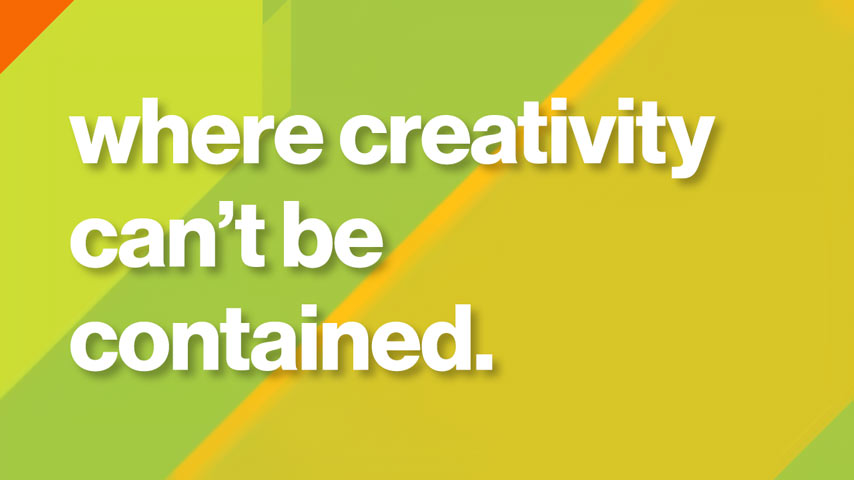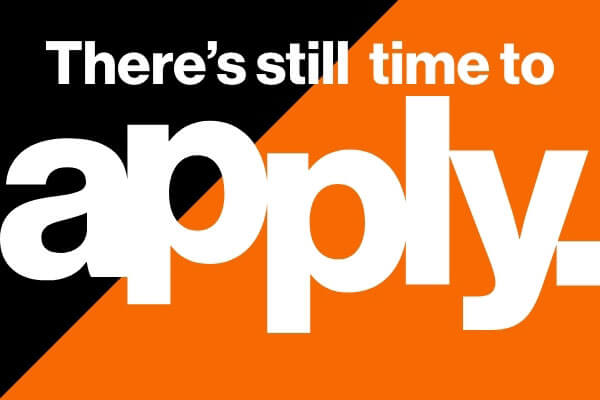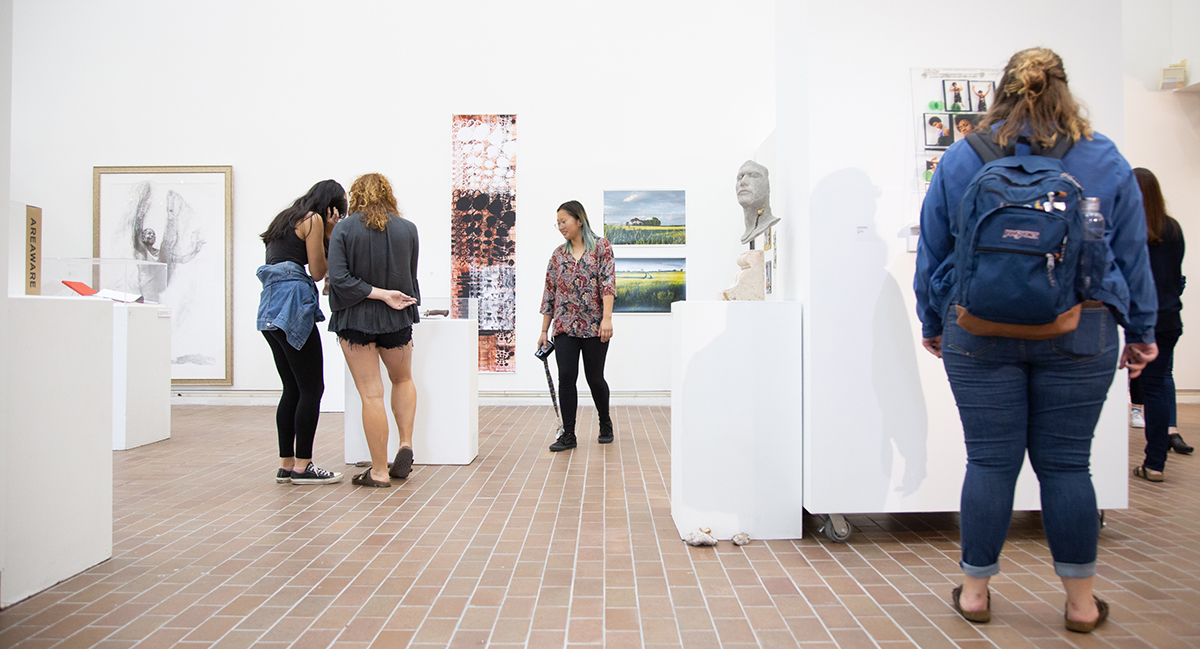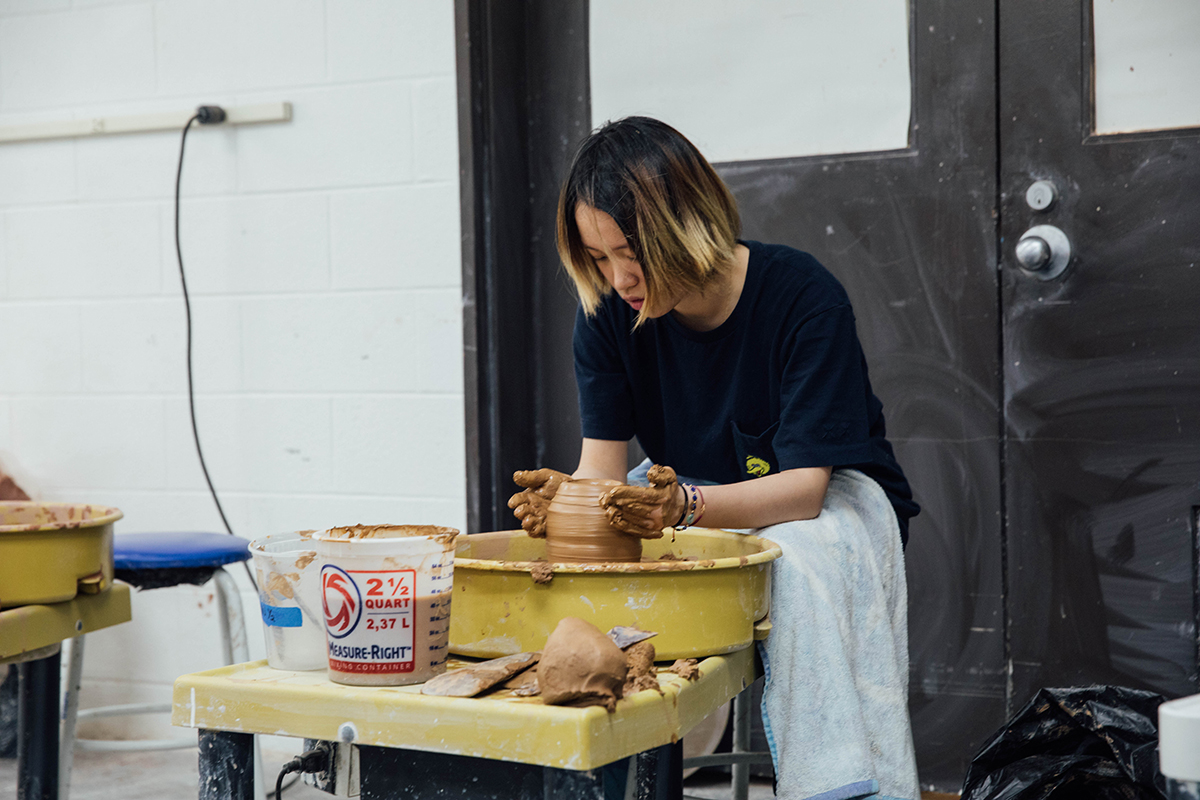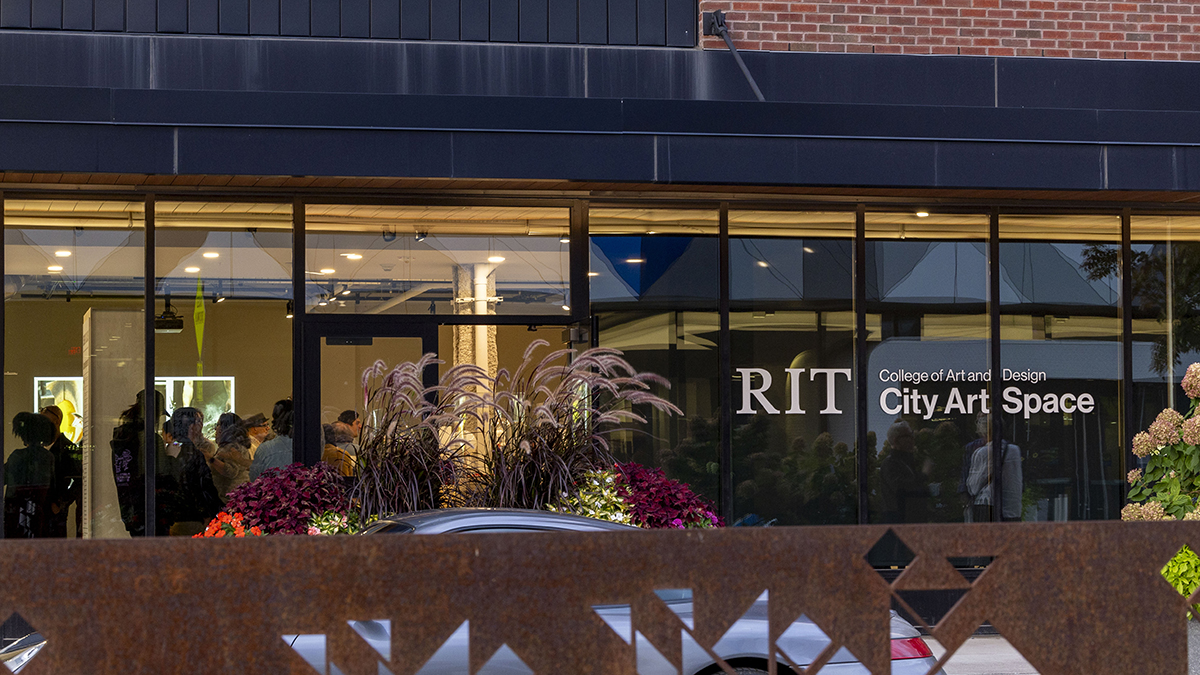Ceramics Option - Studio Arts BFA
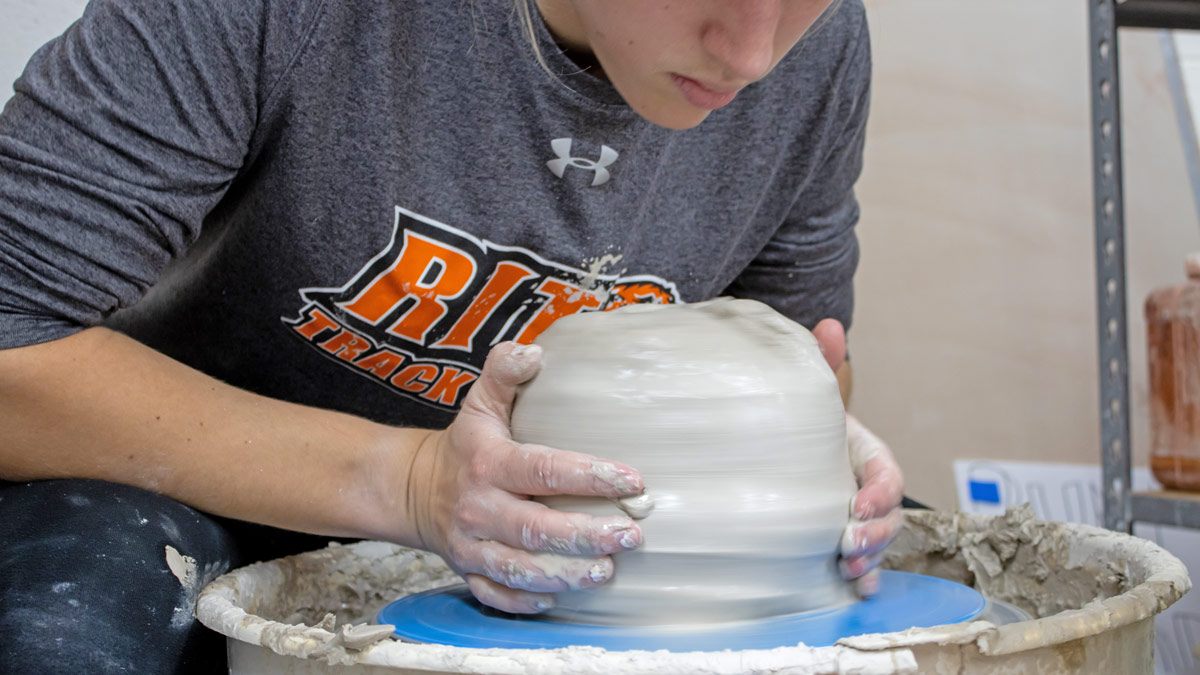
Ceramics Option
Studio Arts BFA
- RIT /
- College of Art and Design /
- Academics /
- Ceramics Option - Studio Arts BFA
RIT's ceramics BFA covers a range of fundamental topics within ceramics including sculpture, pottery, mold-making, glazing, firing, and material science.
Overview for Ceramics Option - Studio Arts BFA
Why Study Ceramics at RIT
College Preparation Workshops: High school juniors and seniors can participate in the two-week School of Art's annual Pre-College Portfolio Preparation Workshop.
Exhibit Your Work: During senior year, exhibit your final body of work in a gallery.
This BFA in Ceramics provides a dynamic environment where intellectual discourse and craftsmanship thrive through a focus on intellectual development, technical skill, and practical knowledge.
RIT’s Studio Arts BFA - Ceramics Option
Individual critiques and group discussions will develop your personal aesthetic and enhance your critical thinking skills. RIT’s ceramics degree option prepares you with the professional and practical skills needed to establish a career in your field. This option is part of the Studio Arts BFA program.
The curriculum supports a range of fundamental topics within ceramics, such as:
- Sculpture
- Pottery
- Mold-making
- Glazing
- Firing
- Material science
- Personal aesthetic development
Students selecting this option are equipped with the professional and practical skills necessary to operate a studio business.
-
Join us for Fall 2026
There's still time to apply. For some programs, applications will be reviewed on a rolling, space-available basis.
-
Join Us for Accepted Student Open House
Visit campus on March 28 or April 11 to meet faculty, tour campus, and ask your questions.
Careers and Experiential Learning
Typical Job Titles
| Art Critic | Artist-in-Residence | Ceramic Artist |
| Clay and Glaze Chemist | Commercial Designer | Curatorial Assistant |
| Gallery Owner | Independent Designer | Materials Specialist |
| Slip-casting Technician | Sculptor | Studio Manager |
| Studio Technician |
Industries
-
Performing and Fine Arts
-
Design
-
Higher Education
-
Museum
Cooperative Education and Internships
What’s different about an RIT education? It’s the career experience you gain by completing cooperative education and internships with top companies in every single industry. You’ll earn more than a degree. You’ll gain real-world career experience that sets you apart.
Co-ops and internships take your knowledge and turn it into know-how. Your art and design co-ops will provide hands-on experience that enables you to apply your artistic capabilities in dynamic professional settings while you make valuable connections between classwork and real-world applications.
Students in the ceramics option are strongly encouraged to complete a cooperative education or internship experience.
Creative Industry Days
Connect with Design Industry Leaders
RIT’s Office of Career Services and Cooperative Education hosts Creative Industry Days, which connects students majoring in art, design, film and animation, photography, and select computing majors with companies, organizations, creative agencies, design firms, and more. Creative Industry Days are a series of events that allow you to network with company representatives and interview directly for open co-op and full-time employment positions.
Featured Work and Profiles
-
Exhibition Opportunities in Downtown Rochester
John Aasp, Todd Jokl RIT has maintained a creative presence in downtown Rochester with an urban art gallery in various locations since 1999. The latest location of RIT City Art Space in the Neighborhood of Play, steps...
Read More about Exhibition Opportunities in Downtown Rochester -
2024 Fulbright Scholar: Emma Herz Thakur
Herz Thakur, a ceramics and illustration double major, will study collections sourced from former French colonies at the National Museum of Natural History.
Read More about 2024 Fulbright Scholar: Emma Herz Thakur -
'Nailed It!' ceramics assignment
Equal parts art history lesson and hands-on making, the RIT ceramics Josiah Wedgwood's Legacy course examines the evolution of 18th-century European ceramics under the influence of Josiah Wedgwood’s...
Read More about 'Nailed It!' ceramics assignment -
Pre-College Portfolio Prep Workshop
RIT's annual Pre-College Portfolio Preparation Workshop offers students an engaging and rewarding experience. The course, taught by our School of Art's drawing and painting faculty, is a visual arts...
Read More about Pre-College Portfolio Prep Workshop -
Throw Your Own Way
Heather Shields '25 Mikey Gambino has roots in pottery dating back to high school, when he and his father transformed a basement room into a ceramics studio. That introduction to the artform ultimately motivated him to...
Read More about Throw Your Own Way -
Student Spotlight: Marian Draper
Marian Draper's ceramics practice draws heavy inspiration from historical objects, with her utilitarian vessels blurring the line between functional and sculptural ceramics.
Read More about Student Spotlight: Marian Draper
Admissions and Financial Aid
This option is part of the Studio Arts BFA. Please visit the degree program page for admission requirements.
Financial Aid and Scholarships
100% of all incoming first-year and transfer students receive aid.
RIT’s personalized and comprehensive financial aid program includes scholarships, grants, loans, and campus employment programs. When all these are put to work, your actual cost may be much lower than the published estimated cost of attendance.
Learn more about financial aid and scholarships
Related News
-
September 24, 2025

New School of Film and Animation director, faculty roles for 2025-26
Ricky Figueora taking over as the new director of RIT's School of Film and Animation headlines exciting promotions and additions to the College of Art and Design faculty.
-
May 13, 2024

Ceramics and Illustration graduate Emma Herz Thakur travels to France as a Fulbright awardee
Emma Herz Thakur ’24 feels fortunate that at RIT she met people who have won major grants, had their work featured in museums, and are connected with scholars from around the world. Now, she is one of them.
-
May 8, 2024

Graduating student embarks on France Fulbright journey to bridge art and history
Emma Herz Thakur '24 (ceramics and illustration) aims to create connections between practicing artisans and museum collections as a Fulbright Scholar working in partnership with French potters and France's Natural Museum of Natural History.
Contact
- Jane Shellenbarger
- Ann Mowris Mulligan Endowed Professor
- School of Art
- College of Art and Design
- 585‑475‑7785
- jmssac@rit.edu
School of Art




